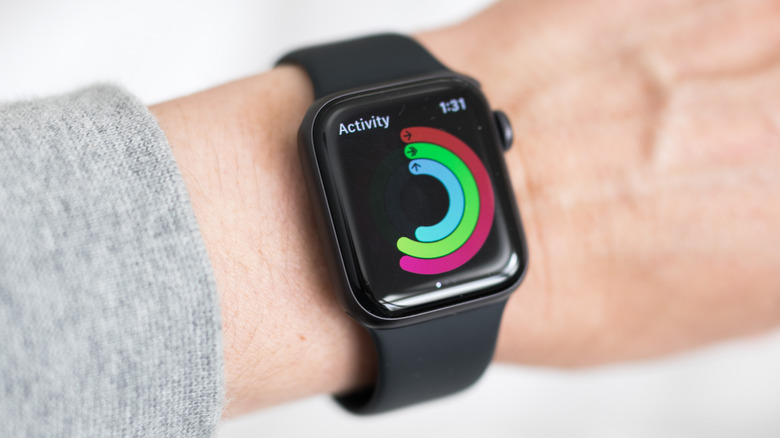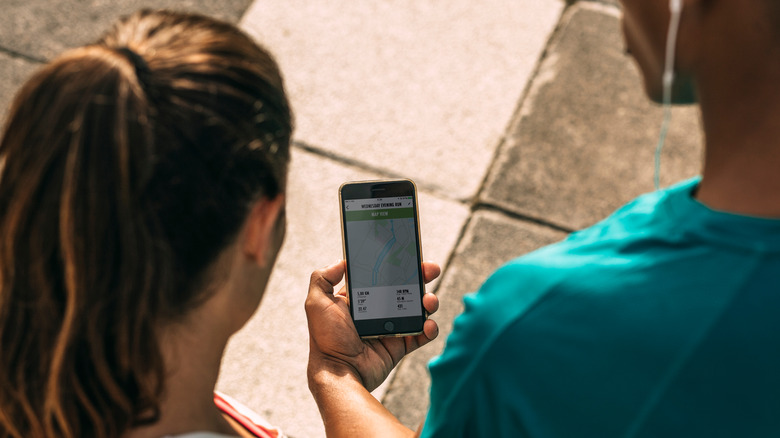Why Just Buying A Fitness Tracker Doesn't Mean You're Moving More
If you track your fitness using a wearable tracker or smartphone app, your daily data of steps and heart rate might have you believing you're moving more. While it's important to know if your fitness tracker is accurate, your fitness tracker can't make you move.
Despite surging sales of wearable technologies since 2014 (via Wired), a 2022 study in Medicine & Science in Sports & Exercise found that physical activity has decreased from 1995 to 2017. During that time frame, our daily steps decreased by about 1,000. Adolescents took even fewer steps per day. Researchers attributed this change to increased screen time on smartphones and video games.
Researchers have found it difficult to conduct large, long-term studies to provide us specifically with data to give us an idea of how they might help. A 2021 study in the Journal of Medical Internet Research mHealth and uHealth noted that syncing issues, inconsistent use, and device updates cause problems with researching fitness trackers over longer periods of time.
What can my fitness tracker do?
This doesn't mean that our fitness trackers are useless. The results of a small survey published in Digital Health in 2020 showed that wearable trackers were helpful in maintaining general health and found challenges and achievement badges to be the most helpful. Aside from tracking steps, there might be other things you didn't know your fitness tracker could do. Newer health trackers, like the Oura ring, can monitor your sleep patterns or predict your menstrual period.
Fitness trackers have the ability to monitor our level of activity from day to day, but they might not sustain us for long. According to a 2016 study published in the Proceedings of the Human Factors and Ergonomics Society Annual Meeting, tracking our physical activity might not do much to create long-term changes in our behavior. In other words, our fitness trackers might make us aware of how much we're moving, but they won't motivate us to get off the couch.
How can a fitness tracker help you move more?
What is helpful in tracking your fitness is accountability. It's one thing to know how many steps you're taking per day, but it's another to have others see your activity. One way to stay motivated is to enter activity challenges with others. A 2017 study in the Journal of Health Communication found that we're more motivated to exercise when we're sharing and competing with others.
The researchers suggested that fitness trackers work best for motivation when they're integrated into a social platform. The researchers wrote, "Because so much of our everyday behaviors are shared and communicated with others through social media, social sharing and social competing may also play a role in predicting exercise behaviors, even for those who are not active fitness device users."
Although the competition factor might keep you motivated, you might be uncomfortable sharing your physical activity with others. Another way a fitness tracker can help you move more is the "gamification" of the tracker. A 2021 study in Multimodal Technologies and Interaction found that most fitness tracking apps had social influence or social challenge elements within them.
However, the study also found that fitness trackers can include plot-based narratives or personal badges to help users achieve fitness goals. Therefore, your levels of activity can be used as currency in a virtual fitness game. In this way, fitness trackers and their system of rewards can help you stay motivated and move a bit more.



